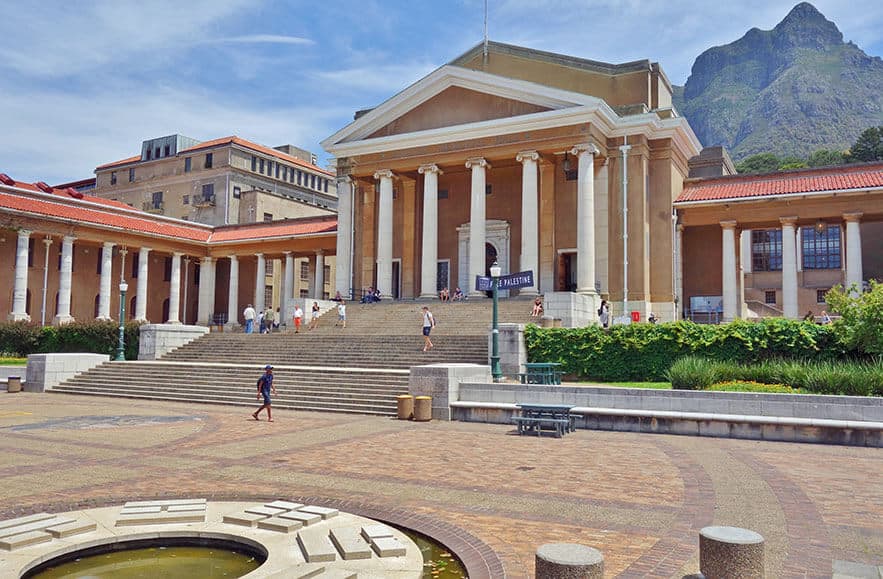Promoters of private higher education in Africa are emphasising the need to widen access, globalise higher education and equip graduates with 21st-century employability skills.
While these are necessary and noble initiatives, these institutions – especially universities – are uniquely positioned to do more through a new approach to academia collaboration for relevant research, innovation and “glocalisation”.
Though higher education in Africa is the second-fastest-growing region with more than 12 million students currently enrolled – fewer than 10% of 18 to 23 year-olds (mostly from more affluent backgrounds) were enrolled as of 2014.
In addition to the potential of tapping into these markets, there must be a focus on the need to equip students with employable skills and prepare them for the global job markets.
Universities backed by investors in private higher education are in a unique position to do more.
New approach to industry-academia collaboration across Africa
Publicly funded universities in sub-Saharan Africa have for several years attempted to drive industry-academia collaboration with a top-down approach.
Often cited for this approach is the triple helix model of innovation, making governments a crucial player in industry-academia interaction. Grappling with several challenges, namely underfunding, not much has been achieved in research and innovation in comparison to their global counterparts who have a more direct relationship with the industry.
In addition to globalisation, glocalisation is needed in Africa’s higher education to train talents who can “think globally and act locally”.
African universities are – by a wide margin – underfunded in comparison to their counterparts in the UK and the US, which can conduct resource intensive research in science and technology. Besieging the continent are a lot of socio-economic challenges that could benefit from quality research in social science and support by applying proven innovations in science and technology.
Yet, a majority of universities in sub-Saharan Africa are geographically and operationally isolated from the industry.
Private universities backed by industry entities with portfolio companies and industry relationships have an opportunity to change this narrative.
Honoris United Universities is backed by the Actis group, which currently has 70 portfolio companies, with a significant presence across Africa. Its recent acquisition of Abuja-based Nile University of Nigeria in 2020 expanded its footprints from north, central and southern Africa to the Western coast.
The ADvTECH Group, which claims to be Africa’s leading private education provider, also has a portfolio of resourcing companies.
Opportunities at hand
Beyond the wide talent pool that a network of institutions offers these companies, is an opportunity for industry-academia collaboration from which the continent’s human capital can reap enormous benefits.
For this to be feasible, it must offer more than a “doing-good” sentiment. Decision-makers in these companies must view the higher education industry as a source of ideas and innovation for their portfolios.
Let’s explore a possible scenario: a portfolio company is operating in an industry with a high rate of entry-level jobs. Though the company plans to reduce cost and time spent in a constant stream of staff exits and hiring, the only available are assumptions based on a high turnover rate without data to plan strategic interventions.
Universities in the network of their investors can be engaged to apply the academic rigour of social science research to analyse the industry better and propose possible solutions.
This not only gives the company a competitive advantage whereby faculty members and students gain exposure to real industry problems on which they conduct research and build critical thinking skills. It also exposes students to the realities of the industry as a solutions-provider, going beyond the scope of a simple internship.
This opportunity is not limited to institutions backed by financing or holding companies; others led by industry veterans can leverage the industry relationship of their leaders and faculty members.
Research and innovation: necessity for relevance
The inability of privately backed universities to deepen their capacity for innovation and research questions their legitimacy as universities for the future. There have even been allegations of some new universities commoditizing the conferment of first degrees.
Research and innovation’s contribution to university rankings would become more important in defining the competitive landscape for private higher institutions. As more countries in Asia and Europe target African students with “study abroad” offers at a cost lower than American, British or Canadian institutions, the pool of options for these students is expected to widen, and university rankings may play a significant role in attracting the brightest ones.
Beyond the competitive advantage offered in rankings, research and innovation can contribute to defining their legacies on the long-term.
For success in leveraging their unique relationship with the industry for research and innovation, there is a need for a faculty that combines relevant industry experience and academic rigour for teaching and research.
For many private higher institutions, there has been growing emphasis on the former due to their focus on employability. There must be a need for faculty members to add to their industry experience and can benefit from assistance offered to students and faculty members by supporting offices for industry-academia collaboration.
The need for ‘glocalization’
Though there has been an emphasis on globalisation of jobs as companies vie for talents as expressed by Fred Swaniker of ALU, the continent first and foremost must provide businesses a market.
The article first appeared in TheAfricaReport


